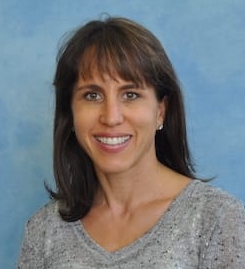#SameHere Psych
Expert Profile - Deana Goldin

Dr. Deana Goldin
PhD, DNP, APRN, Integrative Family and Psychiatric Nurse Practitioner
Clinical Assistant Professor at Florida International University
Serves as a Medical Clinical Director for Medfast, Special Olympics
Current Fellow in Integrative Psychiatry through the Integrative Psychiatry Institute
Contributing author Handbook of GeroPsychiatry, 1st ed. New York, NY: Springer, Author, Chapter 3, “Geriatric Depressive Disorders.”
Founder of Pinecrest Psychiatry
Dr. Deana Goldin’s Bio:
Deana Goldin is a practicing and nationally certified Family and Psychiatric Mental Health Nurse Practitioner and educator. Dr. Goldin holds a PhD in Nursing Education (Nova Southeastern University), a Doctor of Nursing Practice and Family Nurse Practitioner degree (University of Miami) and a Post-Master’s degree in Psychiatric Mental Health from Johns Hopkins University. Dr. Goldin is a Clinical Assistant Professor at the Nicole Wertheim College of Nursing and Health Sciences at Florida International University and the Family Nurse Practitioner Program Leader. Dr. Goldin has a broad background in healthcare with specific training in family practice and mental health across the lifespan and works with diverse populations.
Her practice experiences lead to her observations that numerous clinical problems she encountered had significant psychological components and primary care clinicians were generally ill-equipped to address. Through her assessments she has become a leader in raising awareness and educating clinicians and students on the critical need to identify, manage, and appropriately treat mental health disorders in primary care settings. Dr. Goldin has published numerous articles focusing on uncommon and subtle psychiatric conditions that could easily be overlooked in primary care settings.
Dr. Deana Goldin serves on Board of Directors as an elected member for – Le Jardin Community Center, Inc. and is a Clinical Medical Director for Medfast, Special Olympics.
What life events or challenges that you’ve experienced (could be minor, could be major) – whether you’ve experienced them directly or via someone close to you, have had any type of impact on your desire to pursue a career in psychiatry?
I have always had a deep curiosity about human beings and a desire to understand who others are and how they came to be. As the granddaughter to Holocaust survivors, I am intrigued by how the biological, psychological, and philosophical after-effects of traumatic or adverse events impact mental health, overall functioning and well-being. I found it helpful to explore and understand how my conscious and unconscious observations of my family’s coping and adaption patterns were passed down to future generations. As Albert Bandura’s asserts, “most human behaviors are learned through observation, imitation and modeling.” Understanding the epigenetic influences that shape our attitudes, beliefs and behaviors can provide insight into the lens we use to view the world.
How did those events impact you emotionally/morally? How, if at all did those events impact the way you view how our current system teaches us to treat patients with mental health challenges?
My experiences have impacted the way I view health and wellness. For example, people often think about wellness in terms of physical health, but it is so much more. Wellness is a multidimensional dynamic process that includes a holistic integration of physical, mental, and spiritual well-being. It is about living life fully towards one’s potential. It is the acceptance that change is gradual and requires dedication, discipline, hard work and finding your own superpower, getting to know it and practicing it.
When and why did you decide to actually focus on practicing Integrative Psychiatry, specifically, and how was your decision shaped by the experiences above?
My interest in integrative psychiatry crystalized when I realized that integrative psychiatry was the perfect blend of a healing art and biological science that considers the physical, emotional, behavioral and spiritual dimensions of a person. Integrative psychiatry is grounded in a deep appreciation for the relationship between the mind and body and how they are intrinsically linked.
What methods or practices do you utilize to help individuals get/feel better?
Based upon a model of health and wellness, I use a holistic and patient-centric approach that incorporates both evidence-based conventional and integrative methods. I focus on patients’ biological, psychological, social and behavioral dimensions of health and illness. Diet, exercise, sleep, and gratitude are key elements.
How did people react when you share this Integrative/Holistic approach with them – whether it be patients or other doctors?
I have found both clients and clinicians to be genuinely interested and have positive responses towards integrative approaches. More people than ever before are looking for alternatives to the conventional healthcare model and are glad to know that they have options. Often times, clients are searching for methods to acquire sustainable life-style changes.
Organization: Pinecrest Psychiatry
Location: South Miami, Florida 33143
Address: 7600 Red Road Suite 303
Tel: 786-280-2264
Email: Pinecrestpsychiatry@gmail.com

